HOW ONE MUSIC VENUE USES DISCORD
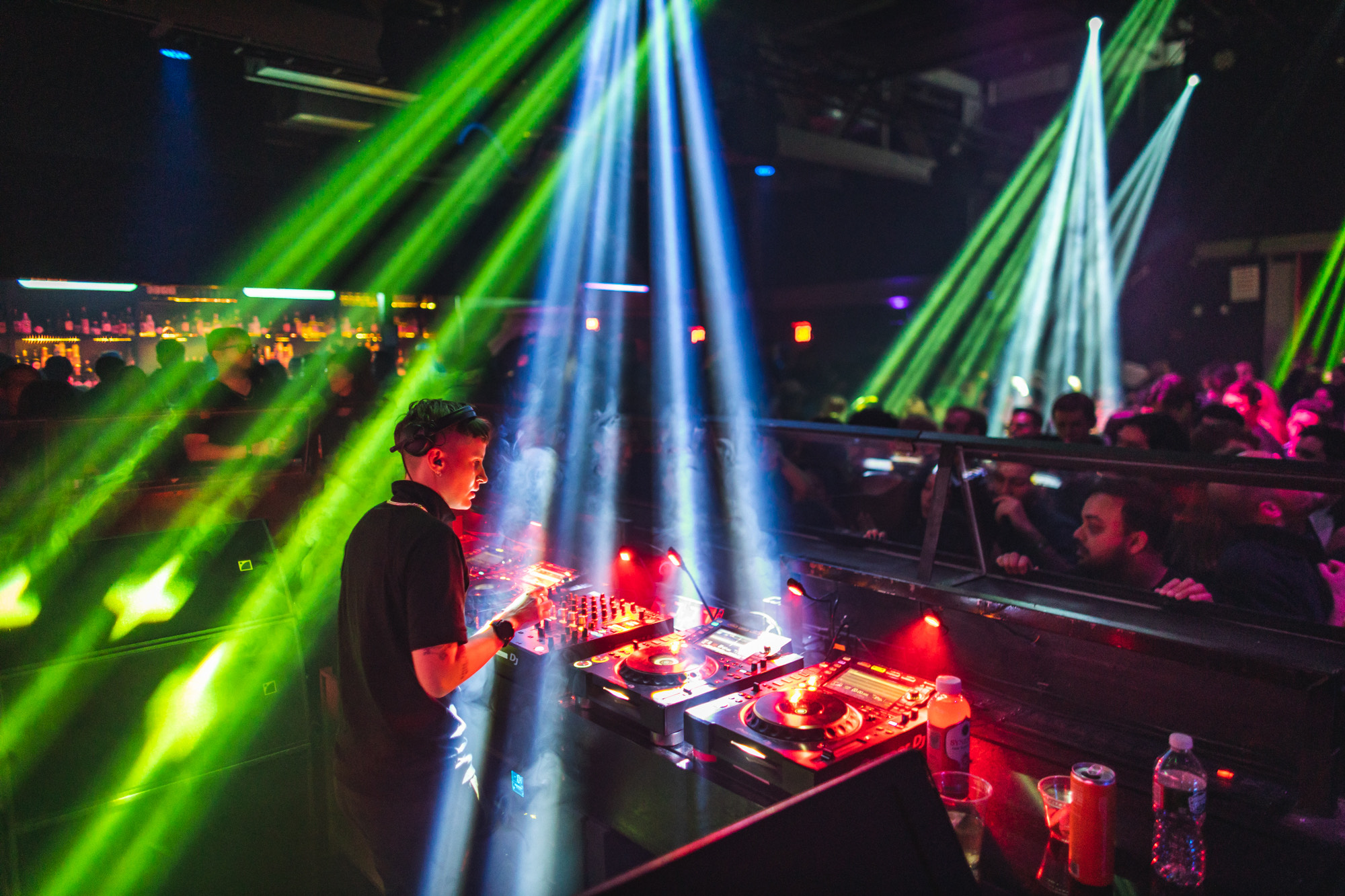
Imagine your favorite band of all time––the one you worship. They’re playing at your favorite music venue––the one that really gets you. You have tickets, you’re ready to party. Now imagine being invited to ask your idols whatever you want a few days before the show.
So goes the AMA, or “Ask Me Anything,” session playing out on the laptop screen before me. The band is British electro-pop duo Cryalot. The venue is multi-stage GenZ paradise, Elsewhere, in Brooklyn, NY.
From the desk shoved into the corner of my bedroom, I scroll through Elsewhere’s dedicated page on Discord, the popular chat app this venue began using as a super-tool to promote shows, community-build, and do fun shit like this (often all at once). Fans with usernames like “DJGayPanic” and “bonk” raise their virtual hands, funneling into the queue as moderator Nabila Valentin invites them to ask…well…anything.
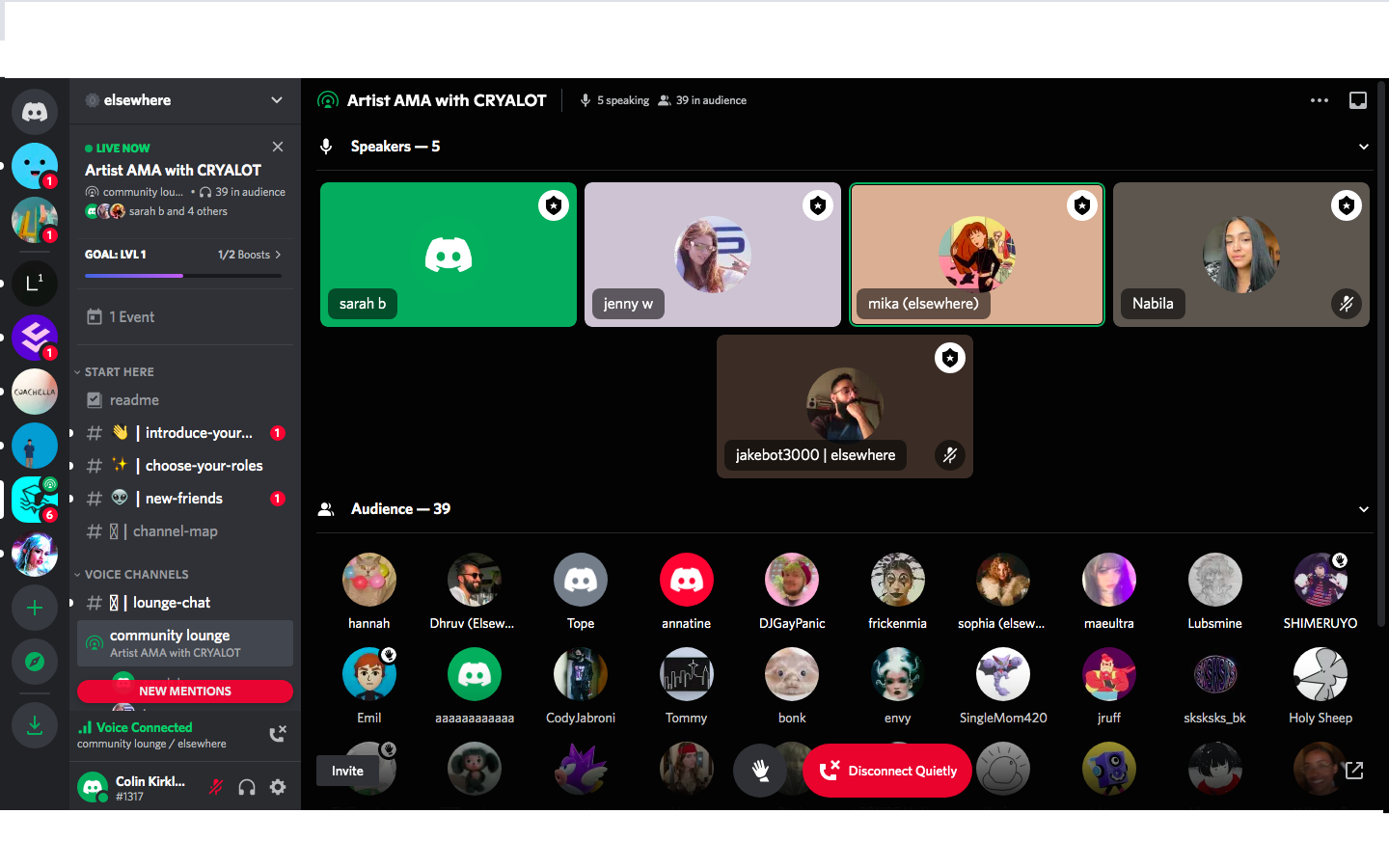
Some fans are too overwhelmed by the chance to speak intimately with their personal rock gods: “Oh my god, I…I…love you,” bonk stammers. “But I…forgot my question, I’m so sorry!”
Sarah Midori and Jennifer Walton, Cryalot’s creative core, giggle and assure their bumbling fan that it’s totally okay, no worries.
When did social media get so… adorable I wonder, leaning back in my chair?
Questions come and go. Answers range from standard informative–– “I’d say my favorite song on the album is…”––to cute: “One time a fan gave me a backpack in the shape of a shrimp…” When the livestream nears its end, Valentin and Elsewhere’s co-founder Jake Rosenthal politely remind everyone to visit the “lounge-chat” to grab their tickets to Cryalot’s upcoming show.
Simple as that.
I’m impressed, and surprised. Are other venues using Discord in this way?
Before we address that question (short answer, no), it’s important to understand the road Elsewhere took to utilizing Discord, a technologically daring ride along the frontlines of emerging and immersive social media. Strap in!
In March of 2020, every music venue was forced to shut their doors due to the unstoppable spread of COVID-19. Elsewhere’s founders––Dhruv Chopra, Rami Haykal, and Rosenthal––decided they wouldn’t allow the venue to go silent for however long the pandemic threatened life as we once knew it.
To make up for the sudden loss of Elsewhere’s physical concert spaces, they felt a responsibility to test digital alternatives. The team first experimented with rebuilding their venue inside of Minecraft, a sandbox video game in which players create Lego-like worlds.
Over 2,000 Minecraft users visited the virtual space (deemed “Elsewither”) between 6pm and midnight on May 8 to jam out to the likes of Russia’s notorious feminist punk group Pussy Riot, Japanese R&B pop singer Rina Sawayama, Brazilian drag queen Pabllo Vittar, and 18 other cutting-edge performers.
Marooned in their living rooms, Elsewhere fans likely experienced a wave of relief, more than ready to sign into Minecraft with avatars, or revel in the festivities via the Amazon-owned live-streaming platform Twitch, which amassed over one-hundred-thousand views.
Due to the success of these early attempts, Elsewhere partnered with Twitch to build out an interactive, mixed-reality live-broadcast variety show––a mouthful, I know. The show was hosted by comedians and featured more musical artists performing live inside of procedurally generated virtual worlds. (Welcome to the future. Or, er, the present. Anyway, welcome!)
In the Twitch chat, audience members were invited to take part in a Choose Your Own Adventure-type voting process in which they could decide the shape of the show’s story arc.
“We learned a lot during that period,” Jake Rosenthal told me. “It was a fun experiment that vindicated the idea that we could still meaningfully reach our community in digital spaces while the venue itself was closed.”
Elsewhere’s stint on Twitch earned them some time (and money, due to the Twitch-sponsored partnership) before the venue was able to reopen its doors in April 2021.
But even with live shows back in action, Elsewhere wanted to incorporate what they’d learned in the digital realm, for the future success of their venue.
A few months ago, the founders decided to bring the same energy they’d discovered on Minecraft and Twitch to Discord––a platform they believed to be more sustainable and accessible to a majority of their followers.
Discord first surfaced back in 2015 as a simple chat app for gamers. Throughout its evolution, the platform has remained comparable to the workplace tool Slack, due to its series of topic-based chat rooms (known on Discord as “servers”), or even Reddit, though conversations on Discord aren’t searchable via Google––this fact alone gives the platform a more intimate, communal feel.
In the years since its geeky beginnings, Discord has redefined itself as a virtual 24-hour diner, blossoming into a home of myriad hubs––large and small, public and private—where people communicate endlessly about topics they’re passionate about.
In 2019, Discord had 56 million global monthly active users. Now, three plus years later, that number surpasses 150 million, with over 4 billion minutes of conversation happening each day across almost seven-million unique servers.
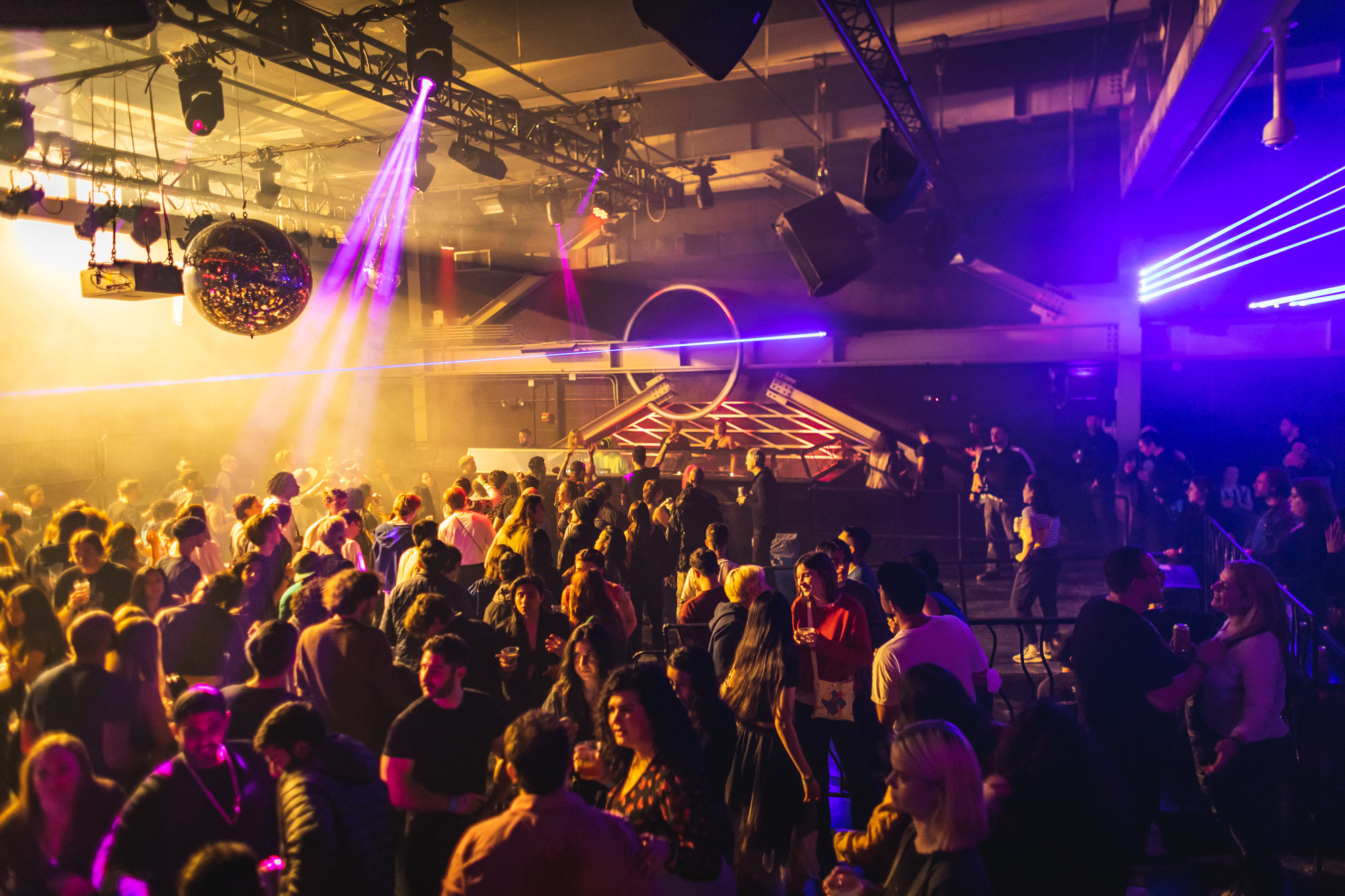
The platform’s jump in popularity can be directly linked to a rebranding effort, as well as the unprecedented disruption of the pandemic.
In March of 2020, as the demand for voice and video chat services grew, the company upped the limit of users on a livestream (from 10 to 50), secured hundreds of millions of dollars in funding, and changed its tagline from “Chat for gamers” to “A new way to chat with your communities and friends.”
These changes proved effective in blasting Discord into the mainstream, attracting a vast array of students, crypto-obsessives, music lovers, and eventually, the music industry itself. Over the past year, Discord has become a haven for big artists, with servers dedicated to and/or run by Snoop Dogg (“Snoop Dogg’s DRIP”), Maggie Rogers, Fleet Foxes, Harry Styles, Gorillaz, and Weezer frontman Rivers Cuomo, who actually communicates directly with his fans––his “neighborhood”––via special broadcasts of solo piano performances and collective readings of Macbeth.
According to Pitchfork, Cuomo even dishes out work roles to his followers and offers special perks for completing tasks––just one quirky example of the communication levels fans and artists reach on Discord.
In the past year, the company has also partnered with major music festivals such as Lollapalooza and Coachella, aiming to cultivate active fandom in the festival grounds and beyond. The platform’s partnership with Coachella, for example, celebrated the festival’s post-pandemic return with a server dedicated to engaging and exciting fans leading up to back-to-back weekends of live music. Over 8,000 fans used the Coachella server to discuss outfits and upcoming sets, and even organize rides to and from the festival.
Months later on Coachella’s Discord users relive highlights, plan for next year’s festivities, share music videos, releases and news about upcoming shows in mini-groups based on music-taste and geographic location. This sense of intimacy, along with the organic forming of fan sub-communities, is what sets Discord apart from traditional social media platforms and chat apps.
“For me, Discord revives the promise of the real internet that existed before social media,” Rosenthal told me, adding that the most frustrating thing for Elsewhere became the paid mediation of platforms like Facebook and Instagram, which ended up feeling like unnecessary barriers standing between the venue and its audience.
“That model––making you pay to reach your followers, and it being a one-directional broadcast relationship––isn’t conducive to community building,” Rosenthal said. “There’s a magic on Discord that makes me look back on the social-media era and feel like we were robbed of real community-building tools.”
But there’s a learning curve when it comes to Discord. Elsewhere’s staff are still getting used to interacting directly with their followers, who are genuinely interested in the venue, upcoming shows, the booking process, and culture of all kinds––to an endless degree.
“It definitely doesn’t stop,” Valentin said, laughing. “People DM me at all hours of the night, hoping that I eventually respond, which of course I do.”
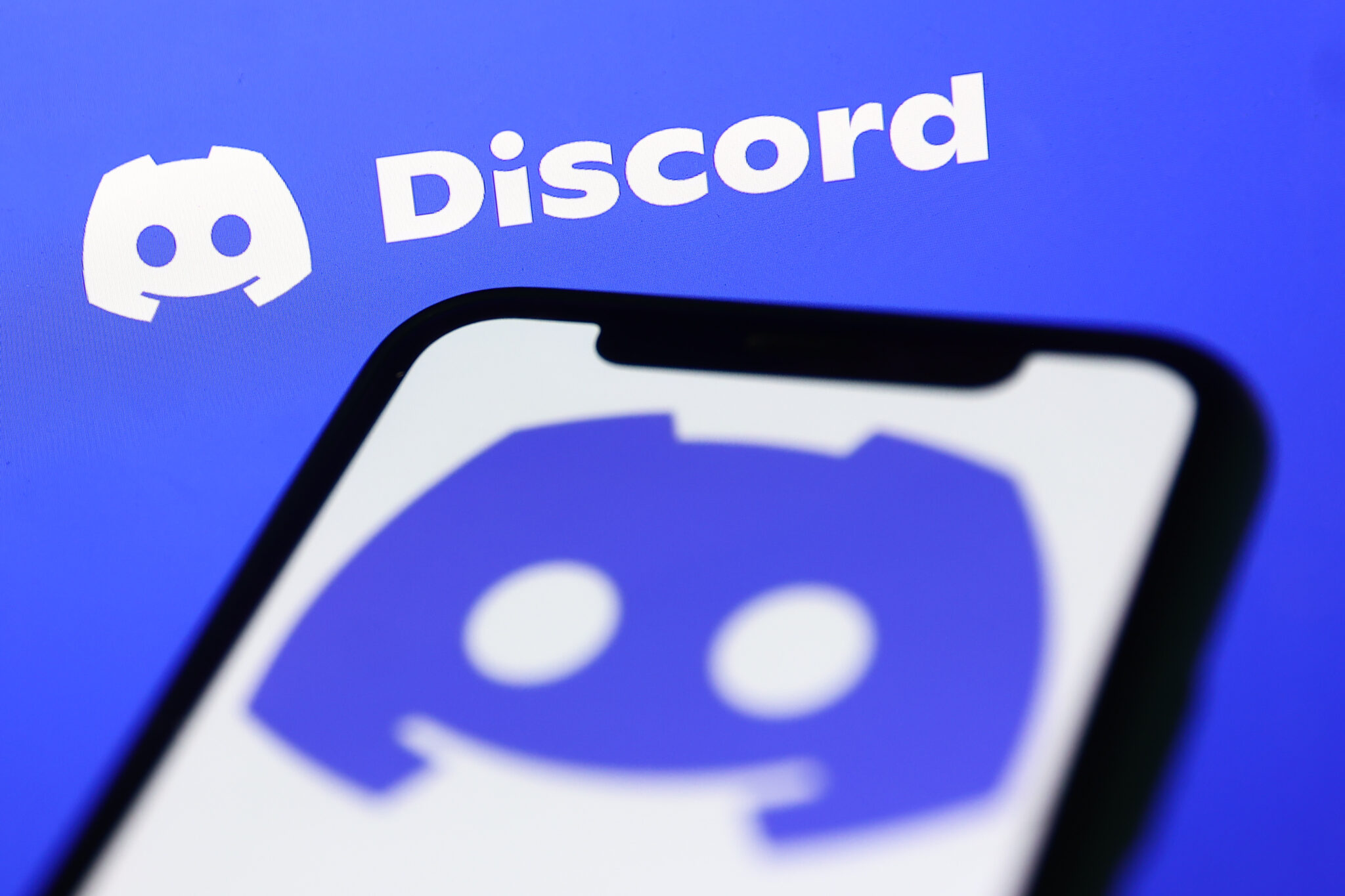
Jake thinks this constant stream of communication is indicative of evolving consumer needs. “People are demanding more transparency from brands and businesses, more accountability, especially if it’s an organizer of cultural events,” he said. He equates the server’s business-value to what he calls “a whole new level of community.”
As a momentary member of Elsewhere’s Discord server at the end of last year, (the venue decided to make its server private in order to avoid “lurkers” and to cultivate active engagement) I had fun exploring the wide array of conversation topics consistently taking place in Elsewhere’s various channels.
On the “introduce-yourself” channel, one new member recently posted about their move to New York and the end of a long-term relationship, to which another member responded with a link to a self-made break-up playlist, “if u need relevant tunes.”
Interestingly, music makes up only one shade of Elsewhere’s digital conversation color-wheel. In a channel designated to “the-future,” Elsewhere members bounce ideas around involving the development of artificial intelligence and other emerging technologies via memes, programs, and links to philosophical/sci-fi literature. In the “tv-film-chat” channel, there are posts about indie film studio A24’s dive into children’s book publishing, beside back-and-forths between members and Elsewhere staff surrounding photos of an 80s Japanese ‘zine dedicated to the scaly cult classic Gremlins. Rosenthal typed, “wow grem2 was just complete nihilism!”
The “ask-anything” channel is where Elsewhere fans can collect info on whether there will be tickets at the door, what time the venue closes, and whether or not their metal hula hoop will be confiscated at the door. Something most of us have never had to worry about.
As a frequenter of live shows, somehow still unable to gauge what time the band will actually go on stage, this level of access seems almost too good to be true. More so, the speed at which Elsewhere staff respond is downright impressive.
Regardless of the topic of conversation or designated channel –– fashion, art, even food –– comments seem to organically lead back to upcoming performances at Elsewhere: what outfits members are crafting, favorite live visuals, and cheap, delicious restaurants to hit before and after the next show.
The clear-cut marketing side of Elsewhere’s server exists starkly in the “gifts” channel, where Valentin posts regular promo links to upcoming shows, inviting fans to RSVP for potential free admission.
“Without realizing, the fan base gives us insight on the consumer experience from start to finish,” she says. “After buying tickets to a show, we’ll see what they thought of the show, whether they had trouble getting in or if security was on, etc. Then we’ll share that feedback with our operational team.”
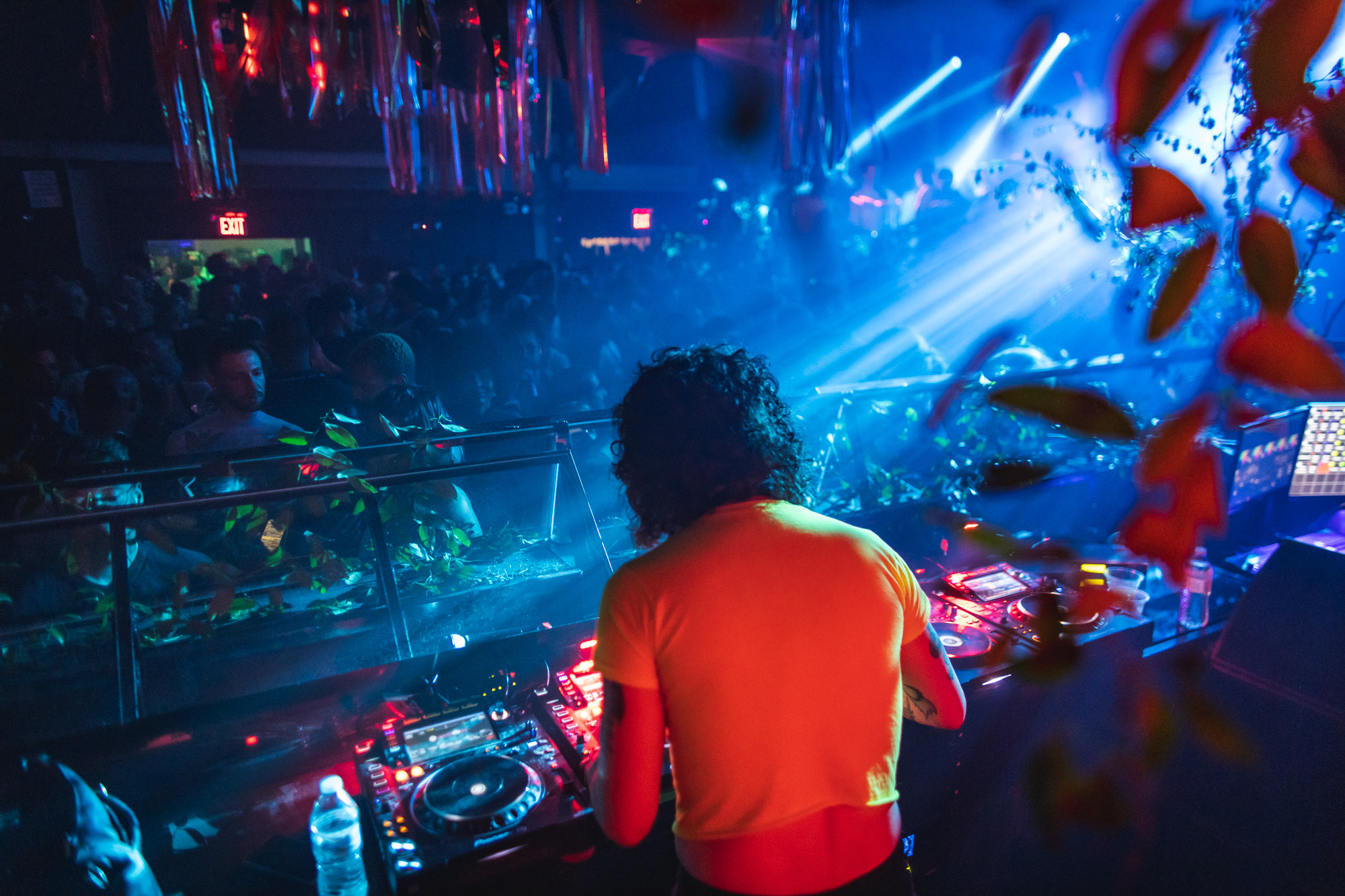
But the more I snooped around Elsewhere’s private server, it became difficult to categorize it as just a marketing tool; the venue’s involvement on the platform harnesses an oddly polite and supportive community. In November, Elsewhere posted about organizing exclusive workshops, led by members who have spent months connecting over their own art and music-making in the “self-promo” channel. Within minutes, people responded, eager to lead and attend workshops on DJing, music-production, graphic design and musical subgenre crash courses, among others.
Even though Discord hasn’t officially partnered with any music venues, and isn’t aware of any venues aside from Elsewhere using the platform, Kenny Layton, Discord’s head of talent partnerships, agrees that music venues –– local clubs, specifically –– will benefit from direct interactions with their customers.
“Growing up, I remember the only way I could find out who was coming to my 200-cap venue in Des Moines, Iowa, was to get lucky enough to spot a flier in the wild or have a friend call me,” Layton told me.
The communal experience of going to a live show can’t be rendered online, but the anticipation that inevitably builds in the process of chatting and planning before a show is a natural phenomenon that Layton thinks Discord provides, though he hasn’t seen venue promoters making use of this opportunity yet.
“Our goal is to continue to be a home for music fans,” Layton added. “What Elsewhere has done within their server is a great example of what other music venues can create.”
On a more technical level, Discord continues to expand their suite of community-building features to do just this, including “Server Subscriptions,” which venues can use to offer exclusive access and premier content (think advanced ticket sales, merch drops, and real-time concert updates), as well as “Stage Channels,” a special type of channel that splits users between moderators, speakers, and audience members. The latter has proven especially useful for Elsewhere’s large-scale audio events, like the Cryalot AMA.
While I can see Discord being a useful tool for most any local venue, it seems to work especially well for Elsewhere, due to its inherent focus on emerging trends and technology. “Being future-forward or on the cutting edge of culture is part and parcel to who we are,” Rosenthal says. He identifies a growing percentage of their audience as Gen Z.
In the future, if there is another pandemic lockdown, Elsewhere feels more secure with the status of their venue.
“If something were to happen again, we already have this online Discord community that we could tap into,” Valentin explains. “Would they be happy listening to live sets on Discord? Or have fans’ favorite artists interview each other? We would know immediately.”
To see our running list of the top 100 greatest rock stars of all time, click here.
The post HOW ONE MUSIC VENUE USES DISCORD appeared first on SPIN.
